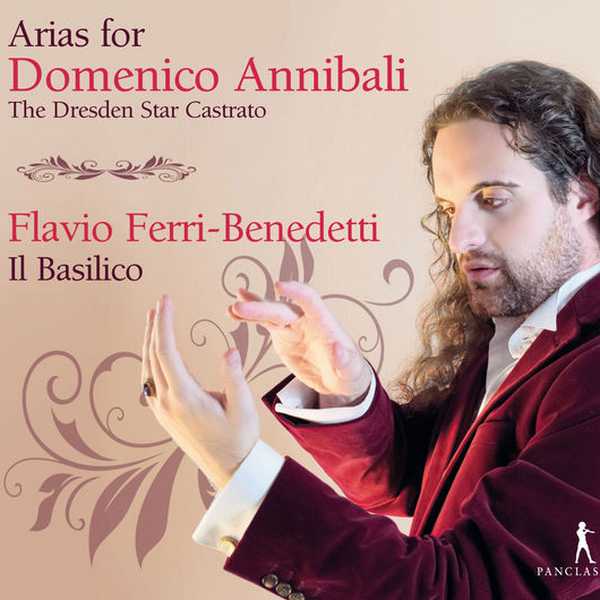
Composer: Francesco Feo, George Frideric Handel, Johann Adolph Hasse, Gaetano Latilla, Nicola Antonio Porpora, Giovanni Alberto Ristori, Jan Dismas Zelenka
Performer: Flavio Ferri-Benedetti, Carla Nahadi Babelegoto, Il Basilico, Eva Saladin
Format: FLAC (tracks)
Label: Pan Classics
Catalogue: PC10341
Release: 2016
Size: 378 MB
Recovery: +3%
Scan: yes
Ristori: Le fate
01. Le fate: Bellezze adorate
Hasse: Cleofide
02. Act III: Cervo al bosco
Porpora: Germanico in Germania
03. Qual turbine che scende
Handel: Arminio
04. Act II: Vado a morir
Feo: Andromaca
05. Quel nocchier che vana ogn’opra
Porpora: Filandro
06. Terra e questa
07. D’esser gia parmi
Handel: Berenice, regina d’Egitto, HWV 38
08. Act I: Se il mio amor fu il tuo delitto
Hasse: Irene
09. Perfidi, sul mio core
Zelenka: Il serpente di bronzo
10. Gia ripiglia vermiglia la rosa
Latilla: Romolo
11. Cosi geloso un angue
Ristori: Componimento per musica
12. Si, rifiorite
13. A vostro dispetto
Flavio Ferri-Benedetti, one of today’s key countertenors for Italian baroque, pays homage to the once-admired but often underestimated castrato Domenico Annibali, who was greatly appreciated in a time when Senesino, Farinelli, Caffarelli or Carestini were fighting for supremacy on Europe’s stages. His 25-year career had him traveling between Italy, England, Germany and Poland, singing for composers such as Handel, Porpora, Zelenka but, most importantly, for Hasse, with whom he premiered most of his operatic roles together with the great prima donna Faustina Bordoni.
In this exciting and varied recital, half of the programme is brand new to disc, including some rare gems such as Feo’s ‘Andromaca’, Latilla’s ‘Romolo’ or Porpora’s ‘Filandro’. Annibali’s season in London for Handel is not only represented by Arminio’s breathtaking prison aria, but also by the duet from ‘Berenice’, here featuring Italian soprano Carla Nahadi Babelegoto. Ensemble Il Basilico, under the guidance of Eva Saladin, accompany Ferri-Benedetti and his portrayal of baroque affetti, with a range of three octaves from baritone to mezzosoprano, as castrati were wont to do.



